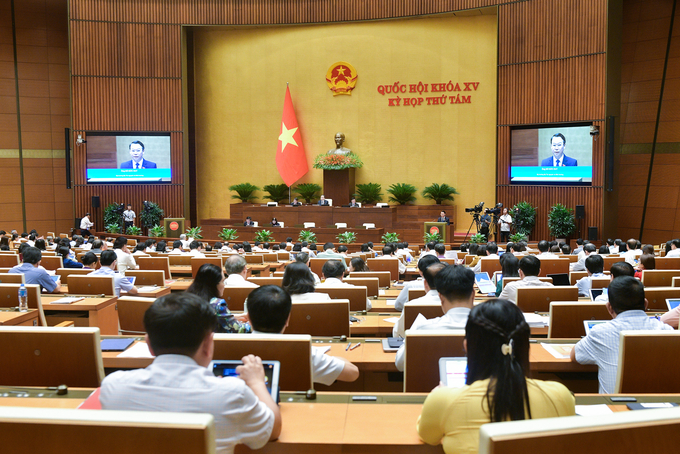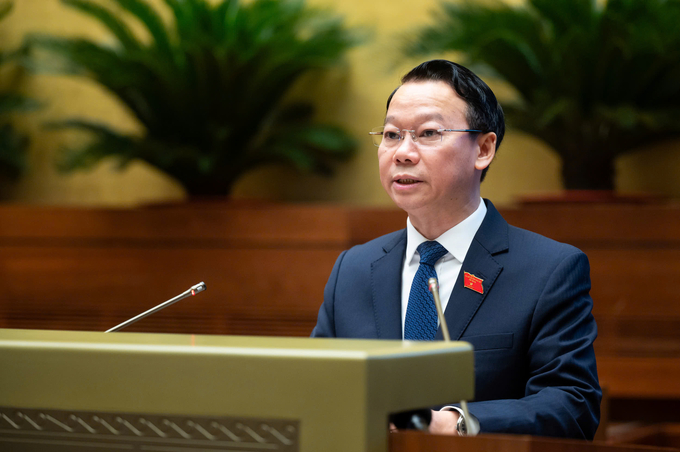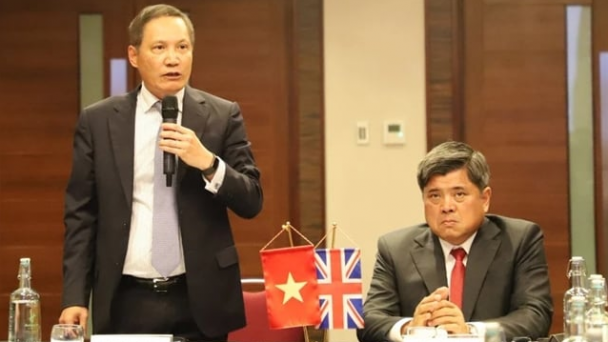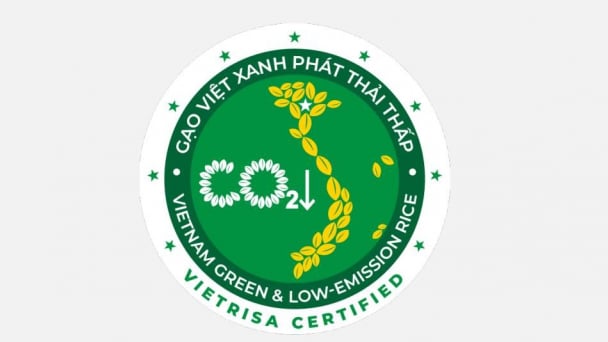May 16, 2025 | 10:14 GMT +7
May 16, 2025 | 10:14 GMT +7
Hotline: 0913.378.918
May 16, 2025 | 10:14 GMT +7
Hotline: 0913.378.918

The National Assembly listens to the proposal on the policy for adjusting the National Land Use Planning for the period 2021 - 2030, with a vision toward 2050. Photo: National Assembly.
The National Assembly continued the agenda of the 8th session on the morning of October 23, as it heard to a proposal and a verification report on the policy of modifying the National Land Use Planning for the period 2021-2030, with a vision towards 2050, at the National Assembly House.
Minister of Natural Resources and Environment Do Duc Duy, submitted the proposal to revise the National Land Use Planning for the years 2021-2030, with a vision toward 2050, on behalf of the Prime Minister. He announced that the National Land Use Planning has yielded favorable outcomes after three years of implementation, thereby guaranteeing the defense and security of localities and the nation as a whole and achieving the socio-economic development objectives.
The Minister disclosed that the Government will submit the National Land Use Planning adjustment to the National Assembly in accordance with the 2024 Land Law. The adjustment will encompass the following key contents: the adjustment of 08 land use indicators, which will encompass agricultural land (including types such as rice-growing land, special-use forest land, protective forest land, and production forest land that is natural forest); non-agricultural land (including types such as national defense land and security land); and the decision to refrain from submitting the National Land Use Plan for approval.
It is essential to conduct a comprehensive evaluation of the 08 land use indicators in this adjustment of the National Land Use Planning to ensure that the land use indicators of sectors, industries, and localities are balanced. It is imperative to prioritize the allocation of land for defense and security purposes, the preservation of rice-growing land to guarantee national food security, the strict management of forest land, and the maintenance of forest coverage to promote sustainable development goals, respond to climate change, and protect the ecological environment.

Minister of Natural Resources and Environment Do Duc Duy, presents the proposal. Photo: National Assembly.
The Government suggests that the National Assembly determine the policy of adjusting the National Land Use Planning as follows: "Consider appointing the Government to coordinate the adjustment of the National Land Use Planning for the period 2021-2030, with a view toward 2050, and submit it to the National Assembly for approval in 2025." This proposal will be incorporated into the general resolution of the 8th session of the 15th National Assembly.
The Covid-19 pandemic, natural disasters, and the adverse effects of global economic and political fluctuations have resulted in challenges in the development of certain sectors and industries, as per Minister Do Duc Duy. Consequently, the preparation for investment and the allocation of resources to implement the planning remain limited, as land conversion to implement development initiatives in certain sectors has not met the necessary requirements.
Despite adjustments and supplementation, the implementation of land use targets for certain categories of land has been inconsistent across localities, and it still fails to meet the actual demands. This has also impacted the socio-economic development outcomes of localities.
The national master planning and numerous national, regional, and provincial sectoral plans had not yet been approved when the National Assembly authorized the National Land Use Planning, according to the Minister of Natural Resources and Environment.
Consequently, the national land use planning and plans did not accurately and comprehensively determine the land use requirements. Post-approval of these plans necessitates modifications to the National Land Use Planning to ensure that it is consistent with practical requirements.
Furthermore, since the Covid-19 pandemic in 2021, the Party and the State have implemented numerous policies to facilitate economic and social recovery and development, as well as to encourage investment in critical national projects, particularly transportation and energy infrastructure, which necessitate substantial land use. This has led to an increase in the demand for certain categories of land in certain localities that have projects in comparison to the allocated objectives.
Translated by Linh Linh

(VAN) Veterinary training should focus on quality, not just quantity. Veterinarians also need more options to pursue specialized training.

(VAN) The veterinary industry needs to be viewed objectively and further invested in to properly demonstrate its role and importance in the new context.

(VAN) The number of veterinarians graduating each year is not enough to meet actual needs, hence a difficult problem for the growing livestock industry.

(VAN) The strategic partnership between Cambodia, the Philippines, Vietnam, and CGIAR ensures that innovative solutions effectively address national priorities for food system development.

(VAN) This was affirmed by the UK Minister of State at the Department for Environment, Food and Rural Affairs during a working session with Deputy Minister Tran Thanh Nam on May 13.

(VAN) On May 13, the Ministry of Agriculture and Environment, in coordination with the Embassy of Vietnam in the United Kingdom, organized a seminar titled 'Connecting trade in Vietnam-UK agricultural, forestry, and fishery products'.

(VAN) The launch of the Vietnam green and low-emission rice brand is a positive signal for both businesses and farmers, marking readiness to reach new heights in the global market.